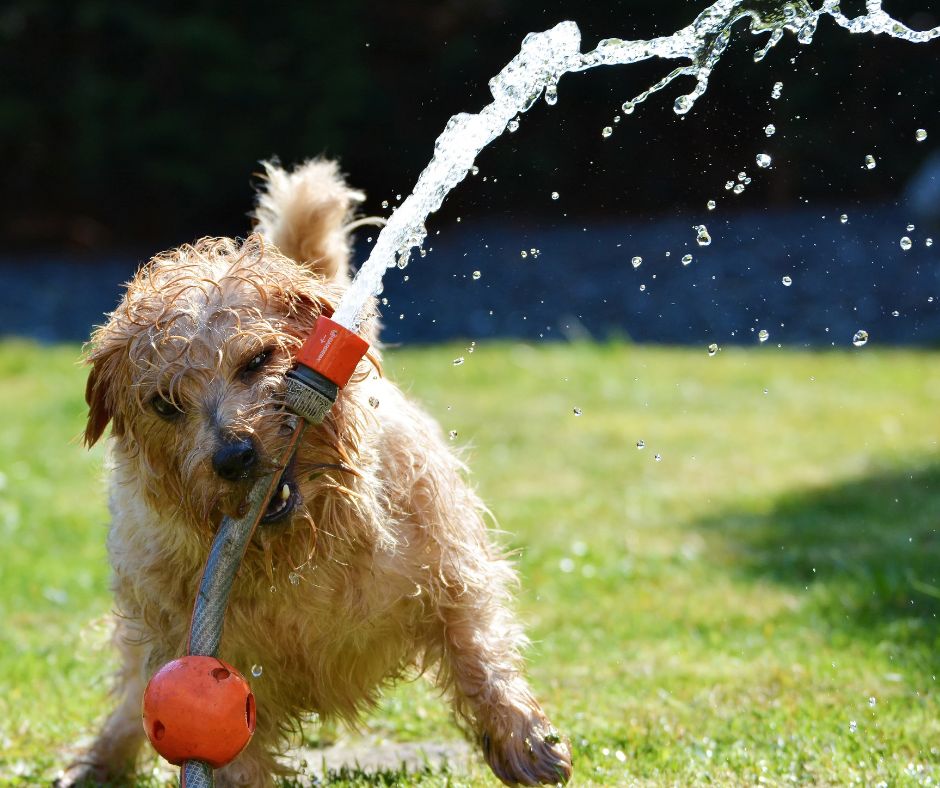Spring Yard Toxicities & Pet Safety: Common Toxicities to Watch for in Houston Lawns
Spring in Houston means warmer weather, blooming gardens, and the return of weekend yard work. While it’s a great time to refresh your outdoor space, many pet parents don’t realize that common lawn and garden products can pose serious health risks to their furry companions.
At Gulf Coast Veterinary Specialists (GCVS), our Emergency & Critical Care team sees an uptick in toxic exposures every spring, many of which are tied to yard maintenance. Knowing what to avoid can help keep your pet safe while you spruce up your outdoor space.
1. Mulch: Cocoa Mulch is a No-Go
Cocoa mulch is a popular landscaping choice due to its pleasant scent and rich color. However, this mulch contains
theobromine, the same compound that causes chocolate toxicity. If your dog ingests it, it can cause vomiting, diarrhea, elevated heart rate, tremors, or seizures.
Safe Alternative: Find a pet-safe mulch made from pine or cedar.
2. Fertilizers & Soil Additives
Fertilizers may contain nitrogen, phosphorus, potassium, iron, and other minerals that can cause gastrointestinal upset or toxicity in pets if ingested. Bone meal and blood meal are particularly tempting to dogs but can cause vomiting, diarrhea, or pancreatitis.
Tip: Keep pets indoors while applying products and restrict access to treated areas for 24-48 hours.
3. Herbicides & Weed Killers
Products that are used for weed control frequently contain glyphosate or 2,4-D, which can irritate a pet’s paws, skin, and gastrointestinal tract. Pets can ingest these toxins by licking their feet after walking on a freshly treated lawn.
Best Practice: Follow the product instructions and wait for surfaces to dry completely before letting pets roam freely.
4. Toxic Plants Blooming in Spring
Several ornamental plants commonly found in Houston yards are toxic to pets. Be especially cautious of:
- Sago Palm (causes liver failure; even a small amount can be fatal)
- Azaleas and Rhododendrons (can cause vomiting, diarrhea, and cardiac issues)
- Lantana, Oleander, and Lilies (highly toxic, especially to cats)
Pro Tip: Check the ASPCA’s Poisonous Plants list before planting new greenery.
5. Pesticides & Insecticides
Spring brings more than flowers – Houston’s bugs return with a vengeance. But many insecticides, especially those with organophosphates or carbamates, can cause neurological issues, tremors, or worse when pets are exposed.
What to Do: Use pet-safe formulations and store all chemicals out of reach.
When to Call an Emergency Vet
If your pet shows any of the following symptoms after time outdoors, contact your veterinarian or a 24/7 emergency hospital like GCVS immediately:
- Vomiting or diarrhea
- Excessive drooling
- Lethargy or collapse
- Tremors or seizures
- Difficulty breathing
GCVS is Here for Houston Pets
Our Emergency & Critical Care department is open 24/7, 365 days a year, to treat pets affected by these springtime toxicities or any urgent condition. If you suspect your pet has been exposed to a toxic substance, call us right away or head to our emergency room.
Phone: 713-693-1111

